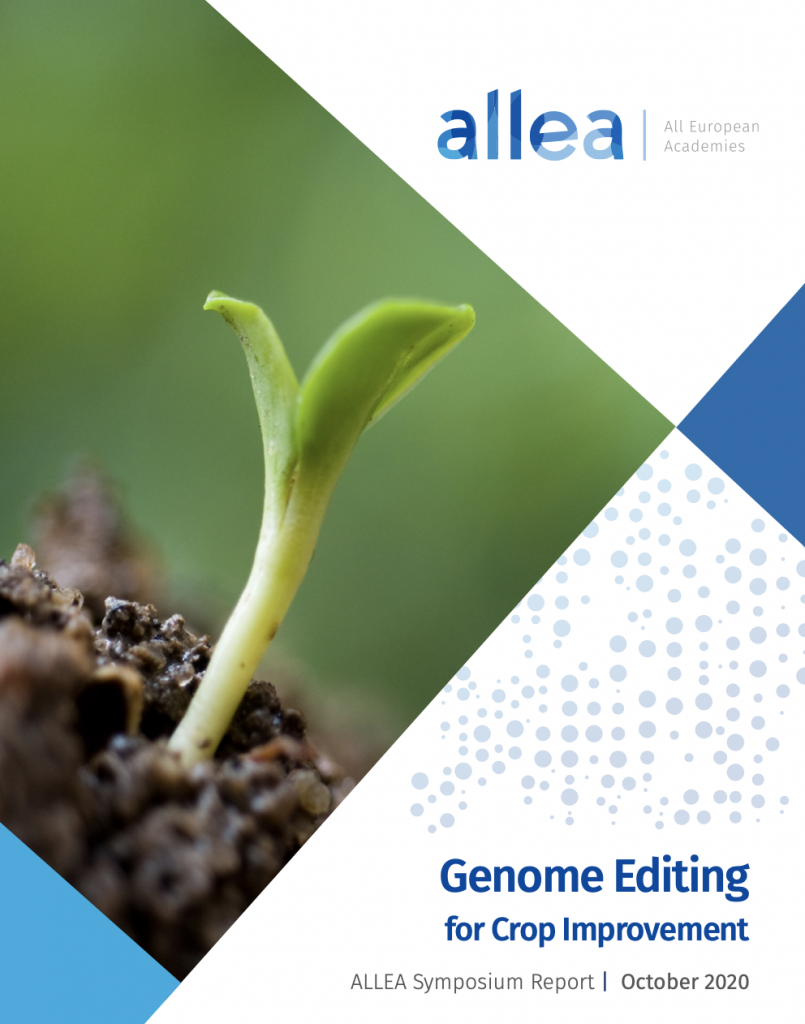
The European Federation of Academies of Sciences and Humanities (ALLEA) published a report on its latest Symposium titled “Genome Editing for Crop Improvement”, which summarises the joint symposium held held in Brussels in November 2019 by ALLEA and the Royal Flemish Academy of Sciences and Arts of Belgium (KVAB) with the same title. Euroseeds actively participated in the meeting.
The symposium took stock of the current state of evidence as regards the application, use and obstacles of new genome-editing technologies for crop improvement. A few examples in this report illustrate the potential of genome editing to introduce beneficial traits to commercialised crop varieties. To make consumers aware, it is important to communicate the role of technological innovations in agriculture through evocative narratives instead of explaining the technicalities and possibilities of the technology itself.
Furthermore, the report picks up on the wider societal debate in Europe surrounding these new technologies and offers an overview of the ethical and legal discourse at the moment, concluding that the current legal framework for genome-edited crops in Europe is not fit for purpose.
The publication provides a comprehensive overview of the status quo in genome-editing techniques and points to a number of future considerations for policymakers, scientists and the wider public alike.
The report is widely aligned with the Euroseeds position, that genome-edited crops with DNA changes that can as well spontaneously occur in nature or result from mutation breeding methods, should be generally considered as safe as crops with the same DNA changes obtained through conventional methods.
Euroseeds welcomes the report as another important contribution to a science based debate on the latest plant breeding innovations.